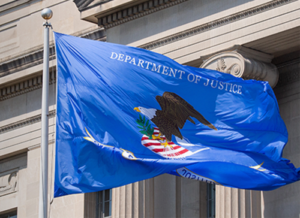
The Consumer Financial Protection Bureau (CFPB) has filed a lawsuit against Capital One for allegedly cheating millions of consumers out of over $2 billion in interest payments on savings accounts. The lawsuit claims that Capital One misled customers about its “360 Savings” account, promising high interest rates but freezing them at low levels while rates rose nationwide.
Key Allegations
- Deceptive Marketing: Capital One marketed its 360 Savings account as offering “best” and “highest” interest rates, but failed to deliver on these promises.
- Two-Tier System: The bank created a new product, “360 Performance Savings,” with substantially higher interest rates without notifying existing 360 Savings account holders.
- Obscuring Information: Capital One allegedly worked to keep 360 Savings account holders unaware of the better-paying 360 Performance Savings accounts.
Impact and Timeline
- The interest rate disparity was significant, with 360 Performance Savings offering up to 14 times the rate of 360 Savings at one point.
- From late 2019 to mid-2024, Capital One froze the 360 Savings rate at 0.30%, while increasing the 360 Performance Savings rate to 4.35% by January 2024.
CFPB’s Action
The CFPB is seeking to:
- Stop Capital One’s alleged unlawful conduct
- Provide redress for affected consumers
- Impose civil money penalties, which would go into the CFPB’s victims relief fund
The lawsuit alleges violations of the Consumer Financial Protection Act and the Truth in Savings Act.
WASHINGTON, D.C. – Today, the Consumer Financial Protection Bureau (CFPB) sued Capital One, N.A., and its parent holding company, Capital One Financial Corp., for cheating millions of consumers out of more than $2 billion in interest. The CFPB alleges that Capital One promised consumers that its flagship “360 Savings” account provided one of the nation’s “best” and “highest” interest rates, but the bank froze the interest rate at a low level while rates rose nationwide. Around the same time, Capital One created a virtually identical product, “360 Performance Savings,” that differed from 360 Savings only in that it paid out substantially more in interest—at one point more than 14 times the 360 Savings rate. Capital One did not specifically notify 360 Savings accountholders about the new product, and instead worked to keep them in the dark about these better-paying accounts. The CFPB alleges that Capital One obscured the new product from its 360 Savings accountholders and cost millions of consumers more than $2 billion in lost interest payments. The CFPB’s lawsuit seeks to stop the companies’ unlawful conduct, provide redress for harmed consumers, and impose civil money penalties, which would be paid into the CFPB’s victims relief fund.
“The CFPB is suing Capital One for cheating families out of billions of dollars on their savings accounts,” said CFPB Director Rohit Chopra. “Banks should not be baiting people with promises they can’t live up to.”
Capital One, N.A. is a national bank with more than $480 billion in assets and is a wholly owned subsidiary of Capital One Financial Corp. (NYSE: COF). Both entities are headquartered in McLean, VA. Capital One offers multiple deposit account products.
In 2012, Capital One acquired online bank ING Direct USA, including its online savings account product, “ING Direct,” which was known for having higher-than-average interest rates. In 2013, Capital One rebranded “ING Direct” as “360 Savings,” and started offering 360 Savings accounts to the general public.
Capital One marketed its 360 Savings account as a “high interest” account with a variable interest rate that was “one of the nation’s” “top,” “best,” and “highest,” and would earn much more interest than the average savings account. It also assured former ING Direct savings accountholders that, with 360 Savings, they would “still have great rates.” However, from late 2019 to mid-2024, Capital One lowered and then froze the 360 Savings account rate to just 0.30%, even as rates increased nationwide. In contrast, starting in early 2022, Capital One increased the 360 Performance Savings account rate. In fact, the rate went from 0.40% in April 2022 to 3.30% as of January 2023, and 4.35% as of January 2024.
The CFPB alleges that Capital One schemed to keep 360 Savings accountholders in their lower-yielding accounts by obscuring 360 Performance Savings’ existence as a distinct product with a higher rate from 360 Savings accountholders. For example, Capital One named and marketed the two products similarly; it eliminated nearly all references to the 360 Savings account product on its website and replaced them with references to the essentially identical 360 Performance Savings account, without notice that 360 Savings continued to exist as a distinct product; it excluded 360 Savings accountholders from a marketing campaign advertising 360 Performance Savings to Capital One’s other existing customers; and it forbade its employees from proactively telling 360 Savings accountholders about 360 Performance Savings. Specifically, the CFPB alleges that Capital One:
- Misled consumers about “high interest” accounts: Capital One illegally deceived consumers and Capital One, N.A. violated the Truth in Savings Act by representing that 360 Savings provided a variable interest rate that was “one of the nation’s” “top,” “best,” and “highest,” and would earn much more interest than the average savings account.
- Kept consumers in the dark to maintain a two-tier system: Capital One misrepresented to existing customers that its 360 Savings account was and would be its only 360 high-interest savings product with the features, terms, and conditions of 360 Savings and obscured from those customers its newer, much-higher-interest 360 Performance Savings accounts, which otherwise had all the same terms, conditions, and features of 360 Savings. Capital One used 360 Performance Savings to attract new depositors without paying existing depositors the interest they were promised. Capital One avoided paying more than $2 billion in additional interest to millions of customers because of these actions.
Enforcement Action
Under the Consumer Financial Protection Act, the CFPB has the authority to take action against institutions violating consumer financial protection laws, including the Truth in Savings Act. It also has the authority to enforce the Consumer Financial Protection Act’s prohibitions on unfair, deceptive, or abusive acts or practices. The CFPB seeks to stop Capital One’s unlawful conduct, provide redress for harmed consumers, and impose civil money penalties, which would be paid into the CFPB’s victims relief fund.
Consumers can submit complaints about financial products and services by visiting the CFPB’s website or by calling (855) 411-CFPB (2372).
Employees who believe their company has violated federal consumer financial protection laws are encouraged to send information about what they know to whistleblower@cfpb.gov. To learn more about reporting potential industry misconduct, visit the CFPB’s website.





